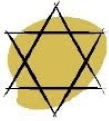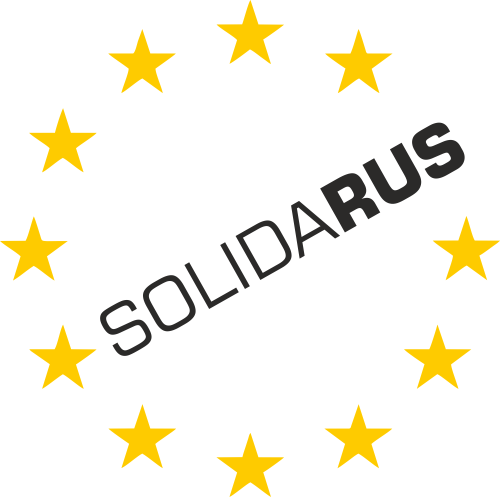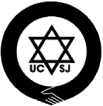The Kremlin’s Political Prisoners: The Case of New Greatness
Ten opposition-minded residents of Moscow and Moscow region have been charged with creating an extremist group, ‘New Greatness,’ (Novoe Velichie) in December 2017, allegedly for the purposes of the violent overthrow of the government and constitutional order of Russia (Article 282.1 of the Russian Criminal Code).
UPDATE: On August 6, 2020, the Lyublino district court in Moscow found seven defendants of the so-called New Greatness movement guilty of “creating an extremist society” with intent to “prepare or commit extremist crimes.” All of them were previously recognized as political prisoners by the Memorail Human Rights Center.
Vyacheslav Kostylenkov, 27, was sentenced to 7 years in prison, Pyotr Karamzin, 34, was sentenced to 6.5 years in jail, and Vyacheslav Kryukov, 22, to 6 years in prison.
On July 24, in a courtroom statement, Vyacheslav Kostylenkov accused the police of beating and sexually assaulting him in order to obtain a confession on camera to belonging to an anarchist organization.
The other defendants — Maksim Roshchin, Dmitry Poletayev, Maria Dubovik, and Anna Pavlikova — received suspended sentences of 4 to 6.5 years.
All seven defendants pleaded not guilty.
In April 2019, another member of the group, Pavel Rebrovsky, was sentenced to 2.5 years in prison. Earlier, a group member Rustam Rustamov received a suspended 18-month prison sentence. Both pleaded guilty and cut deals with investigators.
Another group member, Sergei Gavrilov, fled to Ukraine in October 2019. He was granted a political asylum by Ukrainian authorities.
Having attentively studied the materials of the case, the Memorial Human Rights Center has concluded that the New Greatness association was, essentially, set up by Russian security services. It was them who strove to give the organization an extremist character.
Maria Dubovik was born in September, 1998. Maria was a student of the Skryabin Moscow State Academy of Veterinary Medicine and Biotechnology. She was in custody from March 15 to August 16, 2018 when she was placed under house arrest.
Sergey Gavrilov was born in December, 1992. Sergey earned a higher education degree and worked as a programming engineer. He was detained on March 15, 2018 and has been under house arrest ever since.
Piotr Karamzin was born in April, 1979. Piotr earned a higher education degree in jurisprudence. He has been held in custody since March 15, 2018.
Ruslan Kostylenkov was born in March, 1993. Ruslan completed a specialized secondary education. He has been held in custody since March 15, 2018.
Vyacheslav Kryukov was born in May, 1998. Vyacheslav was a third-year student of the Law Faculty of the Russian State University of Justice. He has been held in custody since March 15, 2018.
Anna Pavlikova was born in March, 2000. Anna completed secondary education and worked as a veterinary attendant. She was held in custody from March 15 to August 16, 2018 when she was placed under house arrest.
Dmitry Poletayev was born in November, 1988. Dmitry earned a higher education degree. He has been held in custody since March 15, 2018.
Pavel Rebrovsky was born in November, 1986. Pavel completed a specialized secondary education. He was detained on March 15, 2018, he has been under house arrest ever since.
Maxim Roschin was born in July, 1979. Maxim was detained on March 15, 2018, he has been under house arrest ever since.
Rustam Rustamov was born in August, 1989. Rustam worked as an engineer of the Central Research Institute for Machine Building. He was detained on March 15, 2018, he has been under house arrest ever since.
All ten opposition-minded residents of Moscow and Moscow region have been charged with creating an extremist group, ‘New Greatness,’ (Novoe Velichie) in December 2017, allegedly for the purposes of the violent overthrow of the government and constitutional order of Russia (Article 282.1 of the Russian Criminal Code).
Having attentively studied the materials of the case, the Human Rights Center Memorial has concluded that the New Greatness association was, essentially, set up by Russian security services. It was them who strove to give the organization an extremist character.
One of the founders and leaders of the New Greatness, known to members of the group as ‘Ruslan D,’ is evidently an agent of the law enforcement agencies (probably the FSB). When he was questioned as a witness, the official record named him as Aleksandr Konstantinov (no other personal information about him was made public). He was a member of the board of the organization, head of its financial department, and its secretary.
With the help of Ruslan D., the security services themselves drew up the charter and program of the New Greatness in such a way that it appeared to be an extremist organization. They also rented an office for the group that was bugged. When Anna Pavlikova left the group because of a quarrel, the agent persuaded her to return. However, one month later she was arrested. Pavlikova has since spent six months in pre-trial detention, with serious injury to her health.
Apart from Ruslan D., two other police officers were infiltrated into the New Greatness and, evidently, there were one or two informers.
However, despite the efforts of the provocateurs, the political program, charter and leaflets of the New Greatness contain no specific statements or provisions indicating that its members intend to overthrow the government by violent means or change the constitutional order of Russia by violence. Texts published on the organization’s website contain no direct calls to violence.
“The so-called New Greatness case is a symbol of the brutality and unjust nature of the struggle against ‘extremism’ in contemporary Russia,” said Sergei Davidis, head of the program of support for political prisoners at the Memorial Human Rights Center. “The group of opposition-minded young people became a victim of a provocation by the authorities. They did not commit any acts of violence, nor did they plan any acts of terror or attacks. They have been charged exclusively in connection with conversations and actions that did not violate the law, and that have been declared criminal only because they allegedly took place in the framework of an ‘extremist organization’ founded by a security service officer who had infiltrated their community.”
The suspects maintain their innocence. They do not deny taking part in the New Greatness, but assert they were engaged in lawful activities and had no intention of overthrowing the government and constitutional order by violent means.
The Memorial Human Right Center recognizes Anna Pavlikova, Mariya Dubovik, Ruslan Kostylenkov, Maksim Roshchin, Petr Karamzin, Pavel Rebrovsky, Dmitry Poletaev, Sergei Gavrilov, Vyacheslav Kriukov and Rustam Rustamov as political prisoners and demands their immediate release and the punishment of those guilty of their criminal prosecution.













